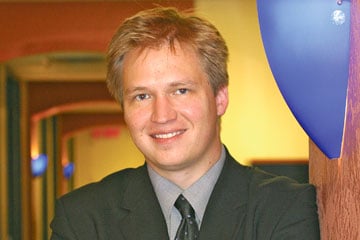
When Philip Okpala first came to Canada as a refugee, he had a hard enough time finding any work, let alone in his chosen profession.

The lawyer fled Nigeria in 2003 after political turmoil forced his family into hiding. While Okpala had achieved an honours degree in a law school program and had worked in Nigeria in different capacities, he was told not to include his legal training in his resumé. He eventually found work at a farm in Ancaster, Ont. through an employment agency and also did some construction.
He later became an assistant for a lawyer who did real estate work while he studied at night for the necessary examinations to gain accreditation in Canada.
He then quit his job to study for the bar exam, which he passed in 2006.
A Law Society of Upper Canada tribunal panel recently suspended Okpala for two months for unknowingly facilitating fraudulent mortgage transactions. In Law Society of Upper Canada v. Okpala, the panel found that Okpala had failed to competently serve his clients but that these failures were largely because of his lack of experience as an immigrant. And the difficulties he experienced were likely compounded by racial discrimination, the decision said.
Lawyers say Okpala’s case and others like it show the law society needs to do more to help lawyers who come to Canada as immigrants and refugees.
“It’s very difficult for people who are not from here and don’t necessarily have a community they can connect to to establish mentoring relationships and build the kinds of connections with people who allow them to grow and gain insight into their practice,” says Joel Sandaluk, an immigration and refugee lawyer at Maman Sandaluk & Kingwell LLP, who was not involved in the case.
A spokeswoman for the law society says the regulator already offers a number of supports and resources for all lawyers, which are also responsive to the needs of immigrant lawyers practising in Ontario. These include a coaching and advisory network and a practice management helpline.
But Sandaluk says more needs to be done to encourage experienced lawyers to provide mentorship, particularly in smaller communities and in practice areas that are dominated by small firms and sole practitioners.
He says simple things that might give rise to suspicion for an experienced lawyer might go unnoticed by someone new to practising law in Ontario.
“Even lawyers from here who are well established in their communities, who have lived in Toronto all their lives, need that kind of mentorship,” he says. “And I think that the need is even more pronounced when somebody is coming from a different place and they don’t have the benefit of a community or a segment within the legal community they can turn to.”
After Okpala passed the bar, he struggled to find an articling position. He filled out 500 applications for articling positions at firms, banks and the government. He got only two interviews, but he did not get offered a position.
The law society panel found the difficulties of finding an articling position in Ontario were likely compounded by racism and prejudice, whether “unconscious bias or intentional discrimination.”
Okpala eventually found a position in Burlington, Ont., but he soon realized he could not afford the commute from Hamilton, where he lived. He later found another position closer to home and finished his articles.
He launched his practice as a sole practitioner after being called to the bar in 2007, as he did not receive a single interview from around 100 employers to which he applied.
Okpala started his practice doing mostly immigration and refugee work, but he eventually started doing wills and estates, as well as real estate and corporate law. He declined to comment for this story, but his lawyer, Daniel Goldbloom, says he accepts the decision as a fair one.
“Throughout this process, he acknowledged that he made mistakes and took responsibility,” he says. “He fiercely denied the law society’s allegations that he knowingly participated in dishonesty or fraud. The tribunal agreed with him.”
Goldbloom, who practises at Simcoe Chambers, adds that Okpala has taken the steps to correct the “identified issues” and that he “remains committed to servicing clients to the highest standards.”
The panel found Okpala had also acted for both transferors and transferees on the transactions in question — something barred by the law society’s Rules of Professional Conduct. He had also recommended structuring a transaction for tax purposes without a proper basis for doing so, the decision said.
Faisal Mirza, a lawyer who represents practitioners in law society tribunals, says the law society has a duty to continue to find ways to support all lawyers — especially those who are foreign trained who experience difficulty finding articles, employment and effective mentorship.
“The law society is viewed by some segments of the profession as an institution that is not interested in supporting disadvantaged candidates or lawyers overcome systemic or personal hardships,” he says.
“Historically, it has been focused on harsh punishment for those that make mistakes. Many of the disciplinary rulings still relied on by discipline counsel and panels support that unbalanced position has prevailed more often than decisions like this.”
In the year after his suspension, Okpala will only be able to practise real estate law if supervised. After that, he will only be able to practise real estate if mentored. He will also have to undergo a practice review and undertake additional professional training in real estate law.
The law society also ordered him to pay $20,000 in costs over four years.